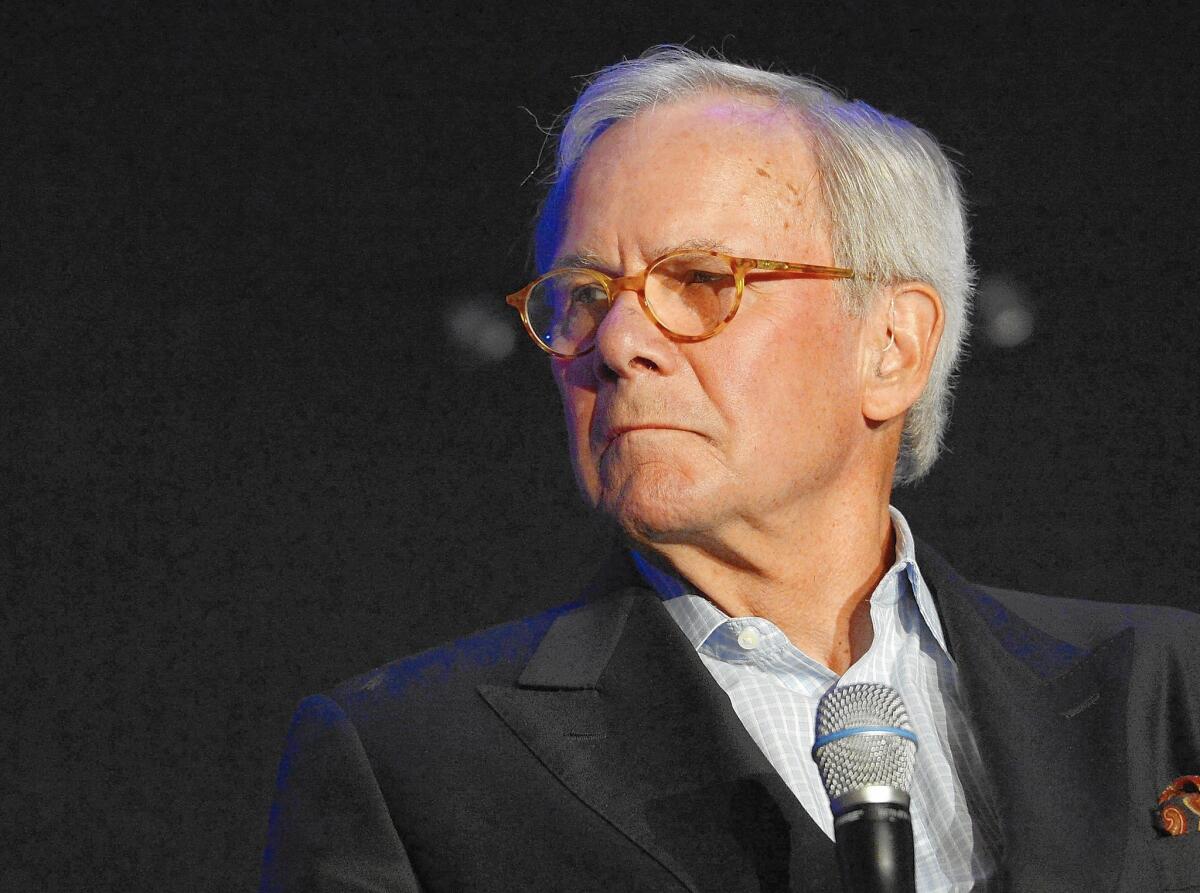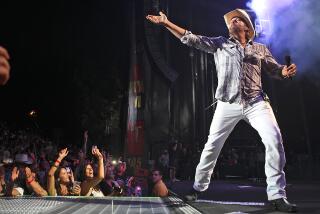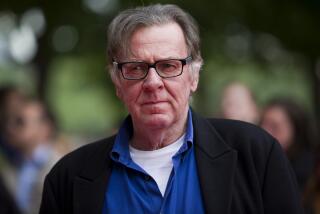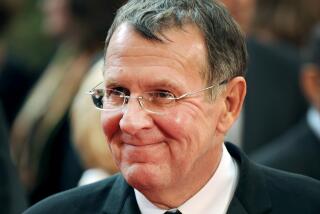Tom Brokaw shares the facts of his cancer in ‘Lucky Life’

- Share via
Tom Brokaw is an icon of American television. A pillar of the NBC news division for decades, he is among the last of his kind — the paterfamilias news anchor whose name, face and voice instantly lends credibility to any circumstance.
It’s a role Brokaw earned by decades of tireless reporting that made him witness to some of the most significant events in his lifetime; it was Brokaw who famously told a nation “we are at war” as the towers of the World Trade Center fell.
So it’s not surprising that when he was diagnosed with multiple myeloma in 2013, Brokaw decided to keep it to himself. Illness at any age can damage a high-profile career, and at 73, Brokaw was already in the tricky position of “elder statesman.” As he writes in his new memoir “A Lucky Life Interrupted,” he did not want to be defined by his disease. Now in remission, he is ready to share his experience.
A recent “Dateline” that preceded the book’s publication was devoted to Brokaw, allowing him to tell his own story in a way that no doubt resonated with other cancer suffers and their families while providing some context of cancer treatment in general. The book, though providing more narrative details, does not go much further; it is not so much a memoir as a personal report.
Brokaw is, after all, a television newsman more comfortable with the whos, whats, wheres and whens than the hows and whys. Those looking for a window into an icon’s soul, or proof that death makes poets of us all, may be disappointed. “A Lucky Life Interrupted” is, instead, a fast-paced, no-nonsense chronicle of the events leading up to Brokaw’s diagnosis, his subsequent treatment and the shock of admitting the possibility of his own mortality.
“C’mon, this doesn’t happen to me,” he writes of his immediate reaction to his diagnosis. “At NBC I am jokingly called Duncan the Wonder Horse for my ability to juggle many projects at once and still indulge my passion for the outdoors.”
This is, of course, a universal attitude toward cancer, and mortality in general — we understand it exists but don’t expect it to directly affect us. Until it does. With his larger-than-life personality, Brokaw embodies, and repeatedly admits to, many people’s secret assumption of their own immortality. Beyond that, however, he is not prepared to go.
His feelings are addressed, but with brevity and often in passing. “I stumbled emotionally for a moment” is how he describes the first hours after his diagnosis. Certainly, we live in strange times when it comes to personal contemplation. Memoir remains the favored literary form, but many grow weary of the populist oversharing facilitated by social media.
That Tom Brokaw seems constitutionally incapable of, if not philosophically opposed to, oversharing may relieve many (and surprise few). But his old-school stoicism, though inspiring in theory, is often as much an obstacle to this book as it was to his treatment. The manner in which he downplays his fear, pain and exhaustion is admirable to a certain extent but also off-putting, like those women who bounce out of bed red-carpet ready mere moments after giving birth — describing the grimmer sides of life is not the same thing as wallowing in self-pity.
Indeed, one of the most powerful and telling scenes in the book describes Brokaw, post-diagnosis but determined not to be hospitalized, curled up in agony at his ranch, which is in the middle of nowhere, Montana. When he cannot even lift his head to kiss his grandson, his wife Meredith finally puts her foot down and calls the medevac.(If one takes nothing else from this book, the lesson that lying about your level of pain only adds to the problem, and the burden on your family, is an important one.)
Although cancer is ubiquitous to the human condition, Brokaw’s experience of it is not, and he does not pretend otherwise. Few people have similar resources — those who offered him advice and help form a laundry list of media elite — and even fewer encounter the kind of attention he received from staff, patients and colleagues during treatment.
It is obvious that Brokaw wrote this book in an effort to aid other cancer patients. Throughout he offers hard-won advice, in particular the importance of having an informed advocate. His daughter Jennifer is a doctor, and Brokaw repeatedly refers to her hard work and its key role in his recovery.
Not every memoir has to be soul-searching, and there is resonance in Brokaw’s matter-of-fact tone that will speak to many who prefer sense to sensibility. No doubt “A Lucky Life Interrupted” is characteristic of the man himself and it’s impossible not to be inspired by Brokaw’s story, and his willingness to share it.
A Lucky Life Interrupted
Tom Brokaw
Random House: 230 pp., $27
More to Read
Sign up for our Book Club newsletter
Get the latest news, events and more from the Los Angeles Times Book Club, and help us get L.A. reading and talking.
You may occasionally receive promotional content from the Los Angeles Times.









